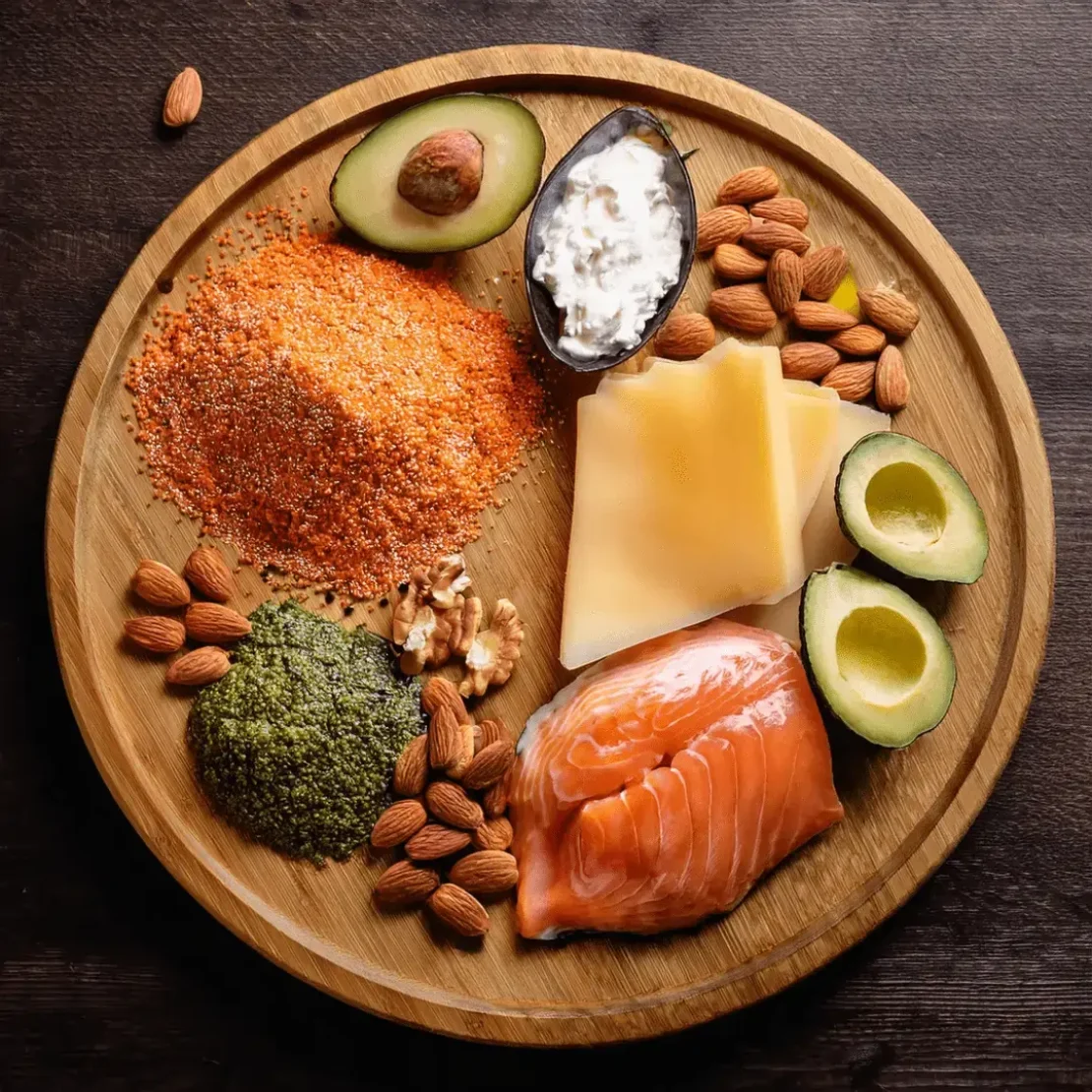Fats are an essential component of a balanced diet, playing crucial roles in energy provision, cell growth, organ protection, and nutrient absorption. However, not all fats are created equal, and understanding the differences between them can significantly impact your overall health. This guide explores the types of fats, the best sources of healthy fats, and practical tips for incorporating them into your diet while avoiding harmful ones.
The Difference Between Saturated and Unsaturated Fats Explained
Fats found in food are primarily categorized into saturated and unsaturated fats, each with different effects on the body.
Saturated Fats are typically solid at room temperature and are found in animal products like butter, cheese, and red meat. These fats can raise LDL (bad) cholesterol levels, increasing the risk of heart disease and stroke. However, not all saturated fats have the same impact on health, so moderation is essential.
Unsaturated Fats, on the other hand, are usually liquid at room temperature and are considered beneficial. They are found in plant-based oils, nuts, seeds, avocados, and fish. Unsaturated fats can be further divided into monounsaturated and polyunsaturated fats.
- Monounsaturated Fats: Found in olive oil, avocados, and certain nuts, these fats help lower bad cholesterol levels, reduce heart disease risk, and provide nutrients that support cell development.
- Polyunsaturated Fats: These include omega-3 and omega-6 fatty acids, essential fats that the body cannot produce. Omega-3s, found in fatty fish, flaxseeds, and walnuts, are particularly beneficial for heart health.
The Impact of Healthy Fats on Cholesterol Levels
Healthy fats, especially unsaturated fats, play a vital role in maintaining optimal cholesterol levels. They help lower LDL cholesterol while increasing HDL (good) cholesterol, which assists in removing LDL cholesterol from the bloodstream.
Omega-3 Fatty Acids are known for their anti-inflammatory properties and their ability to lower triglyceride levels, reduce blood pressure, and prevent plaque buildup in arteries. Incorporating omega-3-rich foods like salmon, mackerel, and flaxseeds into your diet can significantly improve heart health.
Monounsaturated Fats, found in olive oil, canola oil, and avocados, reduce bad cholesterol levels without lowering good cholesterol. They are a staple of the Mediterranean diet, which is renowned for its heart-protective benefits.

Best Sources of Healthy Fats for Heart Health
Incorporating the right types of fats into your diet can lead to numerous health benefits, particularly for your heart. Some of the best sources of healthy fats include:
- Avocados: Rich in monounsaturated fats, avocados are not only heart-healthy but also loaded with fiber, potassium, and other essential nutrients.
- Nuts and Seeds: Almonds, walnuts, flaxseeds, and chia seeds are excellent sources of healthy fats, fiber, and protein. They are also packed with vitamins and minerals that support overall health.
- Fatty Fish: Salmon, mackerel, sardines, and trout are rich in omega-3 fatty acids, which have been shown to reduce the risk of heart disease, improve brain function, and reduce inflammation.
- Olive Oil: A cornerstone of the Mediterranean diet, olive oil is rich in monounsaturated fats and antioxidants. It’s ideal for cooking or as a salad dressing.
- Coconut Oil: While coconut oil contains saturated fats, it also has medium-chain triglycerides (MCTs) that may boost metabolism and provide quick energy. However, it should be used in moderation.
How to Incorporate Omega-3 Fatty Acids into Your Diet
Omega-3 fatty acids are essential for brain health, reducing inflammation, and lowering the risk of chronic diseases. Here are simple ways to add more omega-3s to your diet:
- Fish intake : Include salmon, mackerel, or sardines in your meals to boost your intake of EPA and DHA, the most beneficial forms of omega-3s.
- Add Flaxseeds or Chia Seeds: These seeds are high in alpha-linolenic acid (ALA), a plant-based omega-3. Sprinkle them on yogurt, oatmeal, or salads for a nutritional boost.
- Use Walnuts in Your Recipes: Walnuts are another great source of ALA. They can be added to salads, baked goods, or eaten as a snack.
- Consider Fish Oil Supplements: If you’re not getting enough omega-3s from food, consider taking fish oil supplements. However, consult with a healthcare provider before starting any new supplement regimen.
Ways to Replace Unhealthy Fats with Good Fats in Cooking
Making small changes in your cooking habits can significantly impact your health by reducing the intake of unhealthy fats. Here are some tips to help you make the switch:
- Use Olive Oil Instead of Butter: Olive oil is rich in monounsaturated fats and can be used for sautéing, roasting, or as a base for salad dressings.
- Choose Avocado Instead of Mayonnaise: Avocado provides a creamy texture and healthy fats, making it a great substitute for mayonnaise in sandwiches and salads.
- Opt for Fatty Fish Instead of Red Meat: Replace red meat with fatty fish like salmon or mackerel, which are high in omega-3s and lower in unhealthy saturated fats.
- Bake Instead of Fry: Baking or grilling your food instead of frying can significantly reduce the intake of unhealthy fats. When baking, use a small amount of healthy oil, like olive oil, instead of butter.
How to Identify and Avoid Trans Fats in Processed Foods
Trans fats are artificial fats created by hydrogenating vegetable oils, making them solid at room temperature. These fats are found in many processed foods and are harmful to your health, increasing the risk of heart disease, stroke, and type 2 diabetes. Here’s how to avoid them:
- Read Labels Carefully: Look for terms like “partially hydrogenated oils” on ingredient lists. Even if a product claims to have “0 grams of trans fat,” it can still contain up to 0.5 grams per serving.
- Avoid Fried Foods: Many restaurants use partially hydrogenated oils for frying, so it’s best to limit the consumption of fried foods.
- Choose Whole Foods: Processed foods are more likely to contain trans fats. Opt for whole, unprocessed foods like fruits, vegetables, nuts, and whole grains.
- Cook at Home: Preparing meals at home gives you control over the ingredients and cooking methods, allowing you to avoid unhealthy trans fats.
Healthy Fat-Rich Foods to Boost Brain Function
Healthy fats are not just beneficial for heart health; they also play a crucial role in brain function. Consuming the right fats can improve memory, cognitive function, and even mood. Here are some brain-boosting fat-rich foods:
- Fatty Fish: Rich in omega-3s, fatty fish like salmon and mackerel support brain health by improving communication between brain cells and reducing inflammation.
- Nuts and Seeds: Walnuts, flaxseeds, and chia seeds provide ALA, a type of omega-3 that has been linked to improved brain function and reduced risk of neurodegenerative diseases.
- Avocados: Avocados are high in monounsaturated fats, which support healthy blood flow to the brain, improving cognitive function.
- Dark Chocolate: Dark chocolate contains small amounts of healthy fats, along with antioxidants that protect the brain from oxidative stress.
Try the Mediterranean Diet Approach to Consuming Healthy Fats
The Mediterranean diet is widely regarded as one of the healthiest eating patterns, particularly for heart health. It emphasizes the consumption of healthy fats from sources like olive oil, nuts, seeds, and fatty fish. Here’s how to adopt a Mediterranean approach to healthy fats:
- Prioritize Olive Oil: Use extra virgin olive oil as your primary fat source for cooking, dressings, and drizzling over dishes.
- Include Fatty Fish Weekly: Aim to eat fatty fish like salmon or sardines at least twice a week.
- Snack on Nuts and Seeds: Incorporate a variety of nuts and seeds into your daily snacks or add them to salads and yogurt.
- Enjoy Avocados: Avocados are a staple in the Mediterranean diet. They can be added to salads, spread on toast, or blended into smoothies.
- Limit Red Meat: Replace red meat with plant-based proteins, fatty fish, and poultry to reduce the intake of unhealthy fats.
Conclusion: Making Informed Choices About Fats
Understanding the types of fats and their effects on your health is crucial for making informed dietary choices. By focusing on incorporating healthy fats like monounsaturated and polyunsaturated fats into your diet while limiting saturated and trans fats, you can improve heart health, support brain function, and reduce the risk of chronic diseases.
Start by making small changes in your cooking and eating habits, such as using olive oil instead of butter, eating more fatty fish, and snacking on nuts and seeds. By adopting these practices, you’ll be on your way to a healthier, more balanced diet.
Word Count: 1789
Reading Time: 9 minutes
References:
- Harvard T.H. Chan School of Public Health. “Fats and Cholesterol.” Available at: https://www.hsph.harvard.edu/nutritionsource/what-should-you-eat/fats-and-cholesterol/
- American Heart Association. “Healthy Fats.” Available at: https://www.heart.org/en/healthy-living/healthy-eating/eat-smart/fats/healthy-fats









